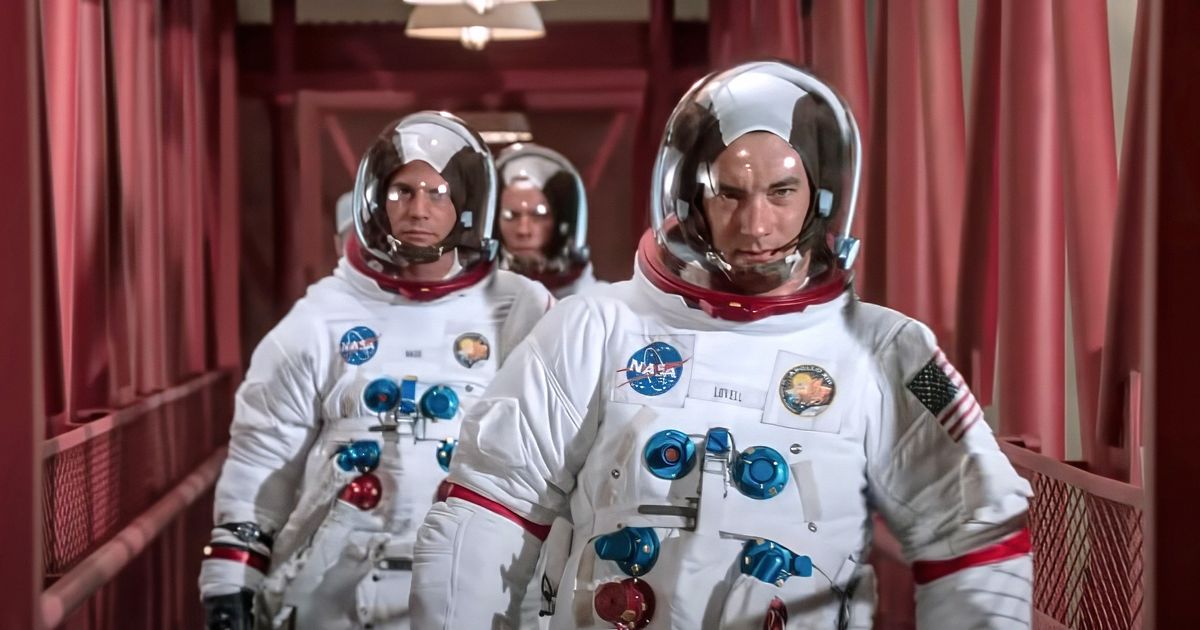
"It happens right after the 1969 moon landing, as astronaut Jim Lovell (Tom Hanks) and his wife, Marilyn (Kathleen Quinlan), drunkenly look up at the night sky. "Christopher Columbus, Charles Lindbergh, and Neil Armstrong," Lovell says, with a sigh. Then, he chuckles and repeats that final name as if he can't believe it fits there: "Neil Armstrong!" he exclaims. Hanks plays it with just the right amount of bemusement."
"But for all its spectacle, what makes it really work is this casual, everyday feel that Howard establishes so well. It's a movie about a bunch of people in a small and tightly knit community whose lives are shaken by catastrophe. Even as he works the suspense and the calamity of what happened on the Apollo 13 mission, Howard never loses this sense of the familiar."
"This has always been one of the director's underappreciated skills. Critics enamored with visionary artists like to think of Howard as a kind of anonymous, workmanlike filmmaker, but a distinctive sensibility does shine through in his movies. His ability to direct actors (having been one for many years) becomes an organizing principle in his pictures, which gives them a communitarian bent."
A throwaway moment in Apollo 13 shows Jim Lovell and his wife drunkenly looking at the night sky and reacting to Neil Armstrong's name with bemused familiarity. That moment establishes the film's casual, everyday tone amid monumental space events. The film balances spectacle and intimate community drama, portraying the astronauts as members of a tightly knit social world whose lives are shaken by catastrophe. The 30th-anniversary IMAX rerelease highlights the film's visual spectacle while memories of 70mm screenings underline its original cinematic impact. Ron Howard's skill directing actors gives his films a communitarian bent, evident across Cocoon, Gung Ho, and Parenthood.
Read at Vulture
Unable to calculate read time
Collection
[
|
...
]